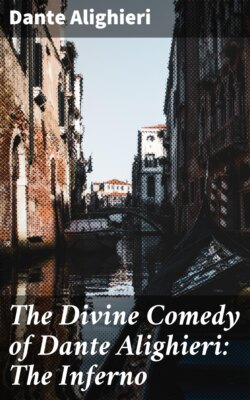Читать книгу The Divine Comedy of Dante Alighieri: The Inferno - Dante Alighieri - Страница 10
На сайте Литреса книга снята с продажи.
VI.
ОглавлениеHistory never abhors a vacuum so much as when she has to deal with the life of a great man, and for those who must have details of Dante’s career during the nineteen years which elapsed between his banishment and his death, the industry of his biographers has exhausted every available hint, while some of them press into their service much that has only the remotest bearing on their hero. If even one-half of their suppositions were adopted, we should be forced to the conclusion that the Comedy and all the other works of his exile were composed in the intervals of a very busy life. We have his own word for this much, (Convito i. 3,) that since he was cast forth out of Florence—in which he would ‘fain rest his wearied soul and fulfil his appointed time’—he had been ‘a pilgrim, nay, even a mendicant,’ in every quarter of Italy,[101] and had ‘been held cheap by many who, because of his fame, had looked to find him come in another guise.’ But he gives no journal of his wanderings, and, as will have been observed, says no word of any country but Italy. Keeping close to well-ascertained facts, it seems established that in the earlier period of his exile he sojourned with members of the great family of the Counts Guidi,[102] and that he also found hospitality with the Malaspini,[103] lords of the Val di Magra, between Genoa and Lucca. At a still earlier date (August 1306) he is found witnessing a deed in Padua. It was most probably in the same year that Dante found Giotto there, painting the walls of the Scrovegni Chapel, and was courteously welcomed by the artist, and taken to his house.[104] At some time of his life he studied at Bologna: John Villani says, during his exile.[105] Of his supposed residence in Paris, though it is highly probable, there is a want of proof; of a visit to England, none at all that is worth a moment’s consideration. Some of his commentators and biographers seem to think he was so short-witted that he must have been in a place before it could occur to him to name it in his verse.
